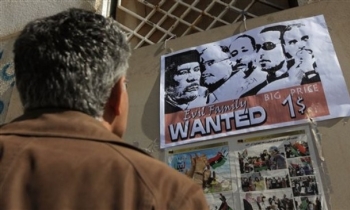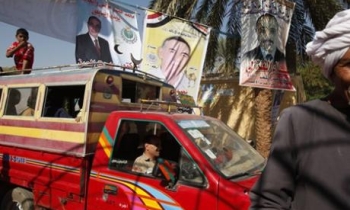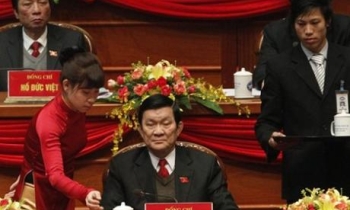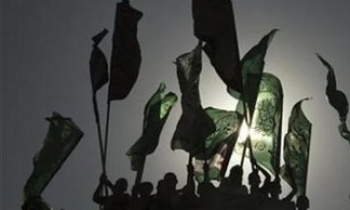The Niger government is taking major repressive steps to stifle news and commentary on the rebellion of nomadic Tuaregs in northern Niger. Live debates and discussions on the issue have been banned along with Radio France Internationale (RFI) and Aïr Info slapped with suspension. Warnings to Liberation, L’Opinion, and L’Evenement have been issued on the same grounds.
The bimonthly Aïr Info, the sole newspaper in the central town of Agadez, was suspended on June 29 for three months by Niger's state-run High Council on Communications. In a fax to the paper, the council accused it of publishing articles “undermining the morale of troops,†director Ibrahim Manzo Diallo told the Committee to Protect Journalist (CPJ). The paper’s annual government subsidy of 1.4 million CFA francs (US$3,000) was also suspended.
Director and editor of Aïr Info, Ibrahima Manzo Diallo reacted to the ban by launching weekly paper Info Air on July 9. He was detained for several hours by the police and was questioned about his reasons for launching the newspaper.
Later, Diallo was arrested by plainclothes police at Niamey’s airport on October 11. He was preparing to board a flight to Paris to participate in a professional seminar of French daily Ouest France, according to Agence France-Presse (AFP). He was arrested on the same day when his newspaper published a list of 20 people detained on suspicions of links with the rebels.
The Niger government also suspended broadcast of France-based RFI for a month, accusing the station of “broadcasting false news†related to the recent armed rebellion. The move came less than a week after the army chief threatened to kill a veteran RFI correspondent, Moussa Kaka, distinguished for his exclusive coverage of the seventh-month-old rebellion.
On August 12, Kaka was detained and sent to prison on the accusation of aiding the rebels and “endangering state security,†according to local journalists. He was released without charge on August 16, but was ordered to remain available to police. He had got threatening on July 14 from army chief of staff Gen Moumouni Boureima. The authorities also banned another visiting reporter, Ghislaine Dupont, of RFI from visiting north of the country.
On August 30, a ban was enforced on the broadcast of live debates on the armed rebellion by Niger’s state-run High Council on Communications. Attacks by Tuareg fighters have killed at least 45 soldiers since February, according to Reuters. The ruling was linked to the broadcast of a live panel on private station Radio Saraounya FM in the capital, Niamey, journalists said. The debate contained commentary critical of the government’s handling of the conflict.
However, broadcasters are still free to air debates and opinions as long as they are not live. “We are concerned that this ban on live broadcasts is just the thin end of the wedge for censorship of coverage of the conflict in northern Niger,†said Joel Simon, CPJ Executive Director.
Hundreds of journalists marched through the streets of Niamey on October 22 to protest the arrests and government crackdown on media coverage. About 400 marchers carrying signs and chanting “Free Moussa Kaka and Ibrahima Manzo!†walked to the Place de la Concertation in front of Niger’s National Assembly. It was the most important march of journalists since 1990, when the country entered an era of political and media liberalisation, according to Abdoulaye Massalatchi, president of one the local media groups participating in the march.
“The arrest of Kaka and Diallo are part of a disturbing pattern of censorship that threatens to undermine the democratic gains made by Niger,†Simon said. “Journalists not only have a right but also a duty to cover the Tuareg rebellion and keep the public informed. We urge the authorities to release our colleagues and lift the restrictions imposed on national and international broadcasters.â€
The allegations against Kaka were based on his telephonic conversation with the rebel leadership. Kaka could face life in prison if convicted, according to defence lawyer Moussa Coulibaly. Coulibaly has filed a writ requesting the production of the alleged recordings.
Diallo remained in police custody without charge, but was transferred from a Niamey police station to an unknown destination. RFI did not have records of professional links with Diallo. His extended detention has exceeded the authorised term of lawful custody of 48 hours, which can legally be renewed once. Coulibaly has filed a petition requesting Diallo either be charged or released immediately.









